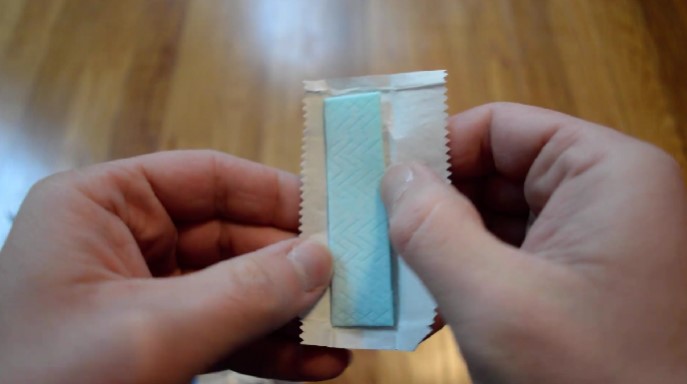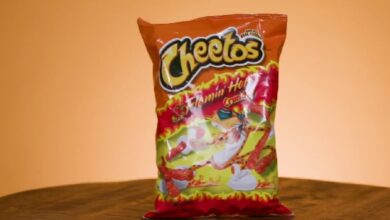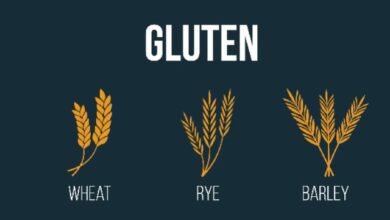Is Extra Gum Halal
Extra Gum is one of the most popular brands of chewing gum worldwide, known for its refreshing flavors and long-lasting chew. But for many consumers, especially those who adhere to halal dietary guidelines, a pressing question arises: Is Extra Gum halal? Determining whether a product is halal involves scrutinizing its ingredients and the processes involved in its production. This detailed article delves into the intricacies of what makes food items halal or haram, examines the ingredients of Extra Gum, and provides a comprehensive answer to this important question.
What Does Halal Mean?
Halal is an Arabic term meaning “permissible” and, in the context of food, it refers to what is allowed under Islamic law. The opposite of halal is haram, which means “forbidden.” For a product to be considered halal, it must not contain any ingredients derived from haram sources, such as pork or alcohol, and must be produced in a manner that adheres to Islamic dietary laws.

Ingredients in Extra Gum
To determine if Extra Gum is halal, we need to examine its ingredients. Common ingredients found in Extra Gum include:
- Sugar
- Gum Base
- Natural and Artificial Flavors
- Glycerol
- Sorbitol
- Mannitol
- Aspartame
- Acesulfame K
- Soy Lecithin
- Color Additives
- BHT (Butylated Hydroxytoluene)
Each of these ingredients needs to be scrutinized for its halal status.
Detailed Analysis of Ingredients
Sugar
Sugar is typically halal unless it is processed with non-halal substances. Most commercial sugar is considered halal.
Gum Base
The gum base is a critical component and can be derived from various sources. It can be synthetic or natural, and the natural sources can include plant resins or animal-derived ingredients. For Extra Gum, the specific composition of the gum base is proprietary, but most major brands use synthetic bases that are generally considered halal.
Natural and Artificial Flavors
These can be derived from a wide range of sources. If they come from plant-based or synthetic origins, they are typically halal. However, if they are derived from animal sources, they need to be verified.
Glycerol (Glycerin)
Glycerol can be derived from both animal fats and vegetable oils. If it is sourced from plants, it is halal. If it comes from animals, it must be verified that it is not from a haram source like pork.
Sorbitol and Mannitol
Both are sugar alcohols derived from starches and are typically considered halal.
Aspartame and Acesulfame K
These artificial sweeteners are synthetically produced and are generally considered halal.
Soy Lecithin
Soy lecithin is derived from soybeans and is considered halal.
Color Additives and BHT
These are typically synthetic and are considered halal, but some color additives can be derived from insects or other non-halal sources. Verification is needed.
Certification and Verification
Many consumers look for halal certification from recognized bodies to ensure a product meets halal standards. Extra Gum does not always carry a halal certification, which can make it difficult for consumers to be certain about its status.
Frequently Asked Questions
What is Extra Gum made of?
Extra Gum is made of various ingredients, including sugar, gum base, natural and artificial flavors, glycerol, sorbitol, mannitol, aspartame, acesulfame K, soy lecithin, color additives, and BHT.
Is Extra Gum sugar-free?
Extra Gum comes in both sugar and sugar-free varieties. The sugar-free versions are sweetened with artificial sweeteners such as aspartame and acesulfame K.
Is Extra Gum vegan?
Extra Gum is generally considered vegan as it does not contain any explicitly animal-derived ingredients. However, the source of certain ingredients like glycerol can be animal-based, so it’s best to verify with the manufacturer.
Does Extra Gum contain gluten?
Extra Gum is typically gluten-free, making it a suitable option for people with gluten sensitivities or celiac disease.
Can chewing gum improve oral health?
Chewing sugar-free gum like Extra Gum can help improve oral health by increasing saliva production, which helps neutralize acids and reduce plaque buildup.
How many calories are in Extra Gum?
Extra Gum is very low in calories, with each stick containing about 5 calories.
How long does the flavor of Extra Gum last?
The flavor of Extra Gum is known for its longevity, typically lasting around 15 to 20 minutes, although this can vary depending on personal chewing habits.
Is Extra Gum safe for children?
Yes, Extra Gum is generally safe for children. However, parents should supervise younger children to prevent choking hazards.
Can chewing gum help with bad breath?
Chewing gum, especially those with mint flavors, can help freshen breath temporarily by increasing saliva flow and masking odors.
Is Extra Gum halal?
While Extra Gum contains mostly halal ingredients, it does not always carry halal certification. Consumers concerned about halal status should check for certifications or contact the manufacturer for more detailed information.
Does Extra Gum contain any common allergens?
Extra Gum does not contain common allergens like nuts or dairy. However, it does contain soy lecithin, which may be a concern for those with soy allergies.
Can chewing gum aid in weight loss?
Chewing gum can help reduce cravings and curb hunger, potentially aiding in weight loss efforts. However, it should not be relied upon as a primary weight loss strategy.
How should Extra Gum be stored?
Extra Gum should be stored in a cool, dry place to maintain its texture and flavor. Avoid exposing it to high temperatures or direct sunlight.
Is Extra Gum safe during pregnancy?
Extra Gum is generally safe for pregnant women. However, it’s always best to consult with a healthcare provider regarding any dietary concerns during pregnancy.
Does Extra Gum contain artificial sweeteners?
Yes, Extra Gum contains artificial sweeteners like aspartame and acesulfame K in its sugar-free varieties. These sweeteners are approved for use by regulatory authorities but should be consumed in moderation.
Conclusion
Based on the ingredients list and general production methods, Extra Gum appears to be made from mostly halal ingredients. However, without a clear halal certification, it remains uncertain whether every component, especially flavors and glycerol, is halal. For strict adherence to halal dietary guidelines, consumers should seek out halal-certified products or contact the manufacturer directly for more detailed ingredient sourcing information.
Read also: Mazapan Nutrition Facts





